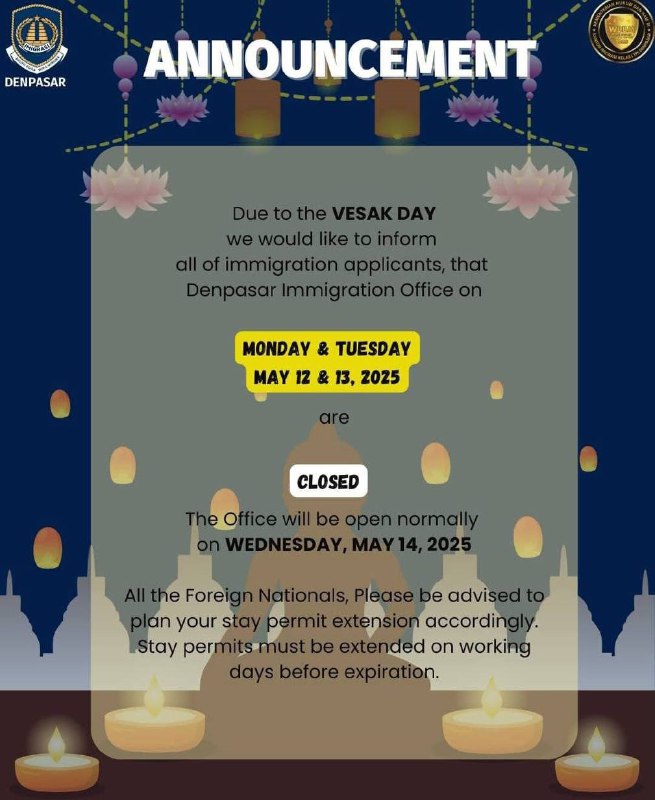SKTT
SKTT (Surat Keterangan Tempat Tinggal) translated from Indonesian as “Certificate of Domicile” or “Residence Certificate”. It is a legal document issued by the Population and Civil Registration Office (Dinas Kependudukan dan Pencatatan Sipil) to certify the residence of an individual or family at the address indicated in their Temporary Stay Permit (KITAS).
To obtain SKTT, individuals typically need to provide the following documents:
Completed forms F-1.08, F-1.09, and F-1.62, which are available at the Population and Civil Registration Office;
Copy of passport;
Copy of KITAS (Temporary Stay Permit);
Guarantee letter from sponsor, along with a copy of their KTP (Indonesian Identification Card);
2 coloured photos sized 3×4;
IMTA work permit for those engaged in official employment.
It’s important to note that the list of required documents may vary depending on the specific requirements of the Population and Civil Registration Office. Therefore, individuals should confirm the exact documentation needed for their SKTT application with the relevant authorities to ensure a smooth process.
Benefits of having SKTT include:
Vehicle Registration: With an SKTT, individuals can register vehicles in their name and renew vehicle registrations (STNK). This is important for legal ownership and operation of vehicles;
KITAS Extension: For foreigners holding a Temporary Stay Permit (KITAS), having an SKTT can facilitate the extension process. It serves as proof of residence, which is often required for visa and permit extensions;
Bank Account Opening: Some banks in Indonesia may require an SKTT as part of the documentation needed to open a bank account. It serves as proof of address and residence, which is a standard requirement for various financial transactions;
Official Confirmation of Residence: The SKTT officially confirms an individual’s temporary residence at the specified address. This can be useful for various administrative purposes, such as applying for government services or proving residency for legal matters.
The requirement for obtaining an SKTT is regulated by Article 20 of Law No. 23 of 2006 “Regarding Population Administration” (“Undang-Undang Nomor 23 Tahun 2006 tentang Administrasi Kependudukan” in Indonesian).
It generally stipulates that:
Foreigners holding KITAS or other permits, as well as those who have changed their KITAS holder status and plan to reside in the territory of the Republic of Indonesia, are required to report this to the Population and Civil Registration Office within 14 days from the issuance of KITAS. This ensures that their residence status is properly documented and registered.
Upon receiving the report as described in point 1, the Population and Civil Registration Office registers the individual and issues the SKTT. This certificate serves as official documentation of the individual’s residence status within Indonesia.
The validity period of the SKTT corresponds to the validity period of the KITAS. This means that the SKTT remains valid for the duration of the individual’s stay as specified in their KITAS. However, the final decision on the validity period may be subject to approval by the head of the Population and Civil Registration Office.
It is mandatory for individuals to carry their SKTT during travel within Indonesia. This ensures that they have the necessary documentation to prove their residence status if required by authorities. It’s important to note that under Article 91 paragraph 2 of the Administrative Law in Indonesia, foreigners traveling within the territory of the Republic of Indonesia without the required SKTT may be subject to administrative sanctions. These sanctions can include fines, with the amount potentially reaching up to 100,000 IDR.
The above regulations ensure that the residence status of foreigners in Indonesia is properly documented and regulated, in accordance with the law on population administration.

Foreigners residing in Indonesia should also be aware that, under Article 71 of Law No. 6 of 2011 “Regarding Immigration,” they have a legal obligation to provide all necessary information about themselves and their families to the local immigration office. Additionally, they must promptly report any changes in civil status, citizenship, employment, sponsorship, or address to the authorities.
According to Article 116, failure by any foreigner to fulfil their obligations as stipulated in Article 71 carries penalties. These penalties may include imprisonment for a period of up to 3 months or a fine of up to 25 million IDR.
This aspect is particularly crucial for KITAS holders, as the address indicated in their documentation must accurately correspond to their actual place of residence. Any discrepancies between the address listed in their KITAS and their current residence could lead to complications with immigration authorities and potential legal consequences. Therefore, KITAS holders should ensure that their address information remains up-to-date and accurately reflects their current living arrangements to avoid any issues or penalties.
While it is true that the enforcement of these regulations by Indonesian authorities may not be stringent at the moment, it’s still advisable for foreign citizens to ensure that their documents align with current legislation. By doing so, they can avoid any potential complications or legal issues that may arise in the future. Keeping documents up-to-date and in compliance with the law is a proactive measure that can help foreign citizens navigate their residency in Indonesia smoothly and without any unforeseen challenges.














